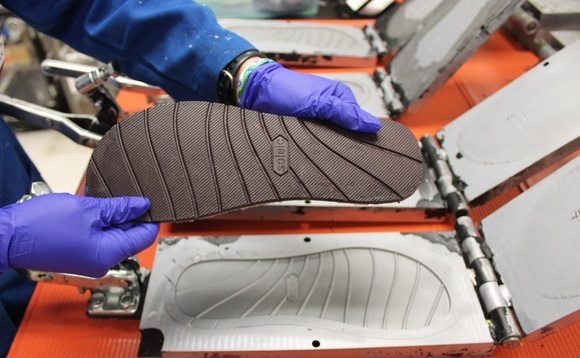
Deal focus: Algae-based bio-plastics come to Asia

US-based Algenesis has figured out how to make plastic from algae. Singapore’s Circulate Capital is helping the company bring the technology to Asian manufacturers
There are fewer than 10 companies globally with significant programmes for producing bio-based polyurethane. They include giants such as BASF and Cargill, as well as a start-up with fewer than 50 employees.
US-based Algenesis claims to be the only company in the world to create a renewable, high-performance, fully biodegradable and backyard compostable bio-polyurethane made from plants and algae.
The use of algae is a key differentiator. All other operators in this space rely on feedstocks such as corn, soybeans, castor oil, or palm oil, which can be extremely environmentally destructive. Also, algae is not a food source, which would usually be a better use of cultivation resources.
"We focus on innovative materials that can drive a circular economy for plastic pollution. We are actively looking at pretty much every company in the world that is developing these types of technologies, and we feel that Algenesis is unique," said Rob Kaplan, founder and CEO of Singapore-based Circulate Capital.
"There are other companies trying to do similar things, but they're not as far along. Most are only partially bio-based, and they might not be biodegradable or compostable without an industrial compost facility."
Circulate is dedicated to stemming plastic pollution through start-up investment globally and bringing that technology to South and Southeast Asia, where most plastic enters the world's oceans.
Last week, the firm joined a USD 5m seed round for Algenesis led by US-based synthetic biology specialist First Bight Ventures. It follows a USD 5m grant from the US Department of Energy. The plan is to expand an early footprint in Asia and explore new product categories while controlling costs and scaling production by bringing more processes in-house.
Algenesis' product is currently available in soft foam applications. As such, early customers include flip-flop and shoe factories in Indonesia and Vietnam. These companies use the material to make slightly more expensive, bio-marketed products. Price parity with petroleum polyurethane is hoped to be achieved in five years.
"Many of the companies we've talked to in this space do not believe that they can get to price parity, or they don't have any intention of doing that. They think they can continue to charge a price premium," Kaplan said. "I think that's a dangerous pathway. We've not seen that work at scale."
Ultimately, the flip-flops and shoe soles game is just a demonstration showcase. Algenesis sees bigger markets in furniture, car seats, luggage, electronics, and other products that use foam such as refrigerator insulation. In 5-7 years, Kaplan expects the start-up to become an attractive acquisition target for a large chemical company.
The go-to-market strategy for advanced materials is a precarious road, however. In addition to the unit economics challenges around pricing versus conventional materials, scaling in the laboratory and scaling in practical scenarios require different skillsets. On top of everything, there's risk in the idea that the new wave is not as clean as it appears.
"Just because they claim to be bio-based or biodegradable doesn't mean that it's good," Kaplan said, referring to due diligence in the bio-materials space in general. "You have to dig into what it's really made of and know what the trade-offs are – because there are always trade-offs."
Latest News
Asian GPs slow implementation of ESG policies - survey
Asia-based private equity firms are assigning more dedicated resources to environment, social, and governance (ESG) programmes, but policy changes have slowed in the past 12 months, in part due to concerns raised internally and by LPs, according to a...
Singapore fintech start-up LXA gets $10m seed round
New Enterprise Associates (NEA) has led a USD 10m seed round for Singapore’s LXA, a financial technology start-up launched by a former Asia senior executive at The Blackstone Group.
India's InCred announces $60m round, claims unicorn status
Indian non-bank lender InCred Financial Services said it has received INR 5bn (USD 60m) at a valuation of at least USD 1bn from unnamed investors including “a global private equity fund.”
Insight leads $50m round for Australia's Roller
Insight Partners has led a USD 50m round for Australia’s Roller, a venue management software provider specializing in family fun parks.







